Related Research Articles

The Defense Advanced Research Projects Agency (DARPA) is a research and development agency of the United States Department of Defense responsible for the development of emerging technologies for use by the military.

The Internet is the global system of interconnected computer networks. It is a network of networks that consists of private, public, academic, business, and government networks of local to global scope, linked by a broad array of electronic, wireless, and optical networking technologies. The Internet carries a vast range of information resources and services, such as the interlinked hypertext documents and applications of the World Wide Web (WWW), electronic mail, telephony, and file sharing.

Instant messaging (IM) technology is a type of online chat allowing real-time text transmission over the Internet or another computer network. Messages are typically transmitted between two or more parties, when each user inputs text and triggers a transmission to the recipient(s), who are all connected on a common network. It differs from email in that conversations over instant messaging happen in real-time. Most modern IM applications use push technology and also add other features such as emojis, file transfer, chatbots, voice over IP, or video chat capabilities.

A black bloc is a tactic used by protesters who wear black clothing, ski masks, scarves, sunglasses, motorcycle helmets with padding or other face-concealing and face-protecting items. The clothing is used to conceal wearers' identities and hinder criminal prosecution by making it difficult to distinguish between participants. It is also used to protect their faces and eyes from pepper spray, which is used by police during protests or civil unrest. The tactic also allows the group to appear as one large unified mass. Black bloc participants are often associated with anarchism, anarcho-communism, communism, libertarian socialism and the anti-globalization movement.
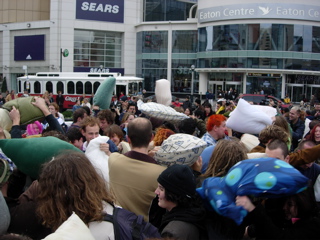
A flash mob is a group of people who assemble suddenly in a public place, perform for a brief time, then quickly disperse, often for the purposes of entertainment, satire, and artistic expression. Flash mobs may be organized via telecommunications, social media, or viral emails.

Mass surveillance is the intricate surveillance of a large group of citizens. The surveillance is often carried out by local and federal governments or governmental organizations, such as organizations like the NSA, but it may also be carried out by corporations. Depending on each nation's laws and judicial systems, the legality of and the permission required to engage in mass surveillance varies. It is the single most indicative distinguishing trait of totalitarian regimes. It is also often distinguished from targeted surveillance.
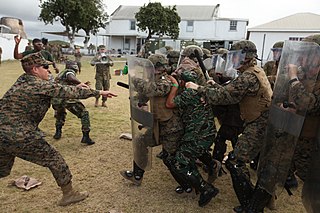
Riot control measures are used by law enforcement, military, paramilitary or security forces to control, disperse, and arrest people who are involved in a riot, unlawful demonstration or unlawful protest.
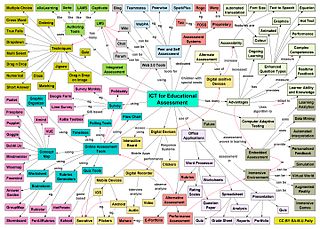
Information and communications technology (ICT) is an extensional term for information technology (IT) that stresses the role of unified communications and the integration of telecommunications and computers, as well as necessary enterprise software, middleware, storage and audiovisual, that enable users to access, store, transmit, understand and manipulate information.
M-learning or mobile learning is a form of distance education where learners use portable devices such as mobile phones to learn anywhere at anytime. The portability that mobile devices provide allow for learning anywhere, hence the word "mobile" in "mobile learning". M-learning devices include computers, MP3 players, mobile phones, and tablets. M-learning can be an important part of informal learning.
A social networking service or SNS is a type of online social media platform which people use to build social networks or social relationships with other people who share similar personal or career content, interests, activities, backgrounds or real-life connections.

The 2006 youth protests in France occurred throughout France during February, March, and April 2006 as a result of opposition to a measure set to deregulate labour. Young people were the primary participants in the protests as the bill would have directly affected their future jobs in a way that they considered negative.

Kettling is a police tactic for controlling large crowds during demonstrations or protests. It involves the formation of large cordons of police officers who then move to contain a crowd within a limited area. Protesters either leave through an exit controlled by the police, leave through an uncontrolled gap in the cordons, or are contained, prevented from leaving, and arrested.

The 2010 United Kingdom student protests were a series of demonstrations in November and December 2010 that took place in several areas of the country, with the focal point of protests being in central London. Largely student-led, the protests were held in opposition to planned spending cuts to further education and an increase of the cap on tuition fees by the Conservative–Liberal Democrat coalition government following their review into higher education funding in England. Student groups said that the intended cuts to education were excessive, would damage higher education, give students higher debts, and broke campaign promises made by politicians.
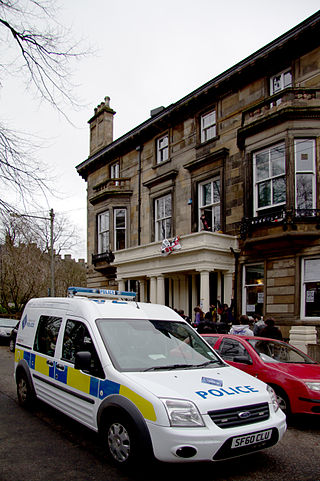
The 2011 occupation of Hetherington House at the University of Glasgow, Glasgow, Scotland, was a student, staff and community anti-austerity protest from 1 February to 31 August 2011. It became one of the longest-running student occupations in the context of the wider movement of student protests in the UK in 2010 and 2011 United Kingdom anti-austerity protests.

The Occupy movement was an international populist socio-political movement that expressed opposition to social and economic inequality and to the perceived lack of "real democracy" around the world. It aimed primarily to advance social and economic justice and different forms of democracy. The movement has had many different scopes, since local groups often had different focuses, but its prime concerns included how large corporations control the world in a way that disproportionately benefits a minority, undermines democracy and causes instability.
Occupy South Africa was a South African initiative primarily aimed at protesting and inciting mass action against the racial, economic and social inequality in South Africa. It is part of the globally Occupy Wall Street movement. It consists of a loose informal affiliation of on the ground groups and individuals across South Africa as well as internet based groups. Groups such as Taking Back South Africa!, Occupy South Africa are involved in South Africa and online. The movement is also involved with the Marikana miners' strike.
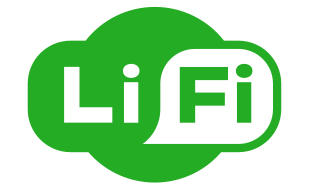
Li-Fi is a wireless communication technology which utilizes light to transmit data and position between devices. The term was first introduced by Harald Haas during a 2011 TEDGlobal talk in Edinburgh.
A real-name system is a system in which users can register an account on a blog, website or bulletin board system using their legal name.

Mass surveillance in the People's Republic of China (PRC) is the network of monitoring systems used by the Chinese central government to monitor Chinese citizens. It is primarily conducted through the government, although corporate surveillance in connection with the Chinese government has been reported to occur. China monitors its citizens through Internet surveillance, camera surveillance, and through other digital technologies. It has become increasingly widespread and grown in sophistication under General Secretary of the Chinese Communist Party (CCP) Xi Jinping's administration.
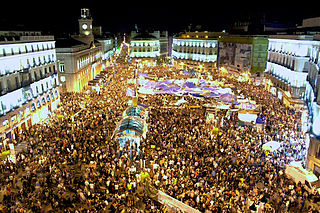
The anti-austerity movement in Spain, also referred to as the 15-M Movement, and the Indignados Movement, was a series of protests, demonstrations, and occupations against austerity policies in Spain that began around the local and regional elections of 2011 and 2012. Beginning on 15 May 2011, many of the subsequent demonstrations spread through various social networks such as Real Democracy NOW and Youth Without a Future.
References
- ↑ "Students invent system to thwart police 'kettling'". The Toronto Star. 4 February 2011.
- ↑ "Sukey take it off again". The Economist. 28 January 2011.
- ↑ "The Real Social Network".
- ↑ "Touchez pas aux forêts !". Le Monde.fr. 14 February 2011.
- ↑ "One Per Cent: Police can't keep up with tech savvy protesters". www.newscientist.com. Archived from the original on 10 February 2011.
- ↑ "Business Day".
- ↑ "Inside the anti-kettling HQ". TheGuardian.com . 3 February 2011.
- ↑ Gaus, Samuel (3 May 2019), gausie/croud , retrieved 18 February 2020